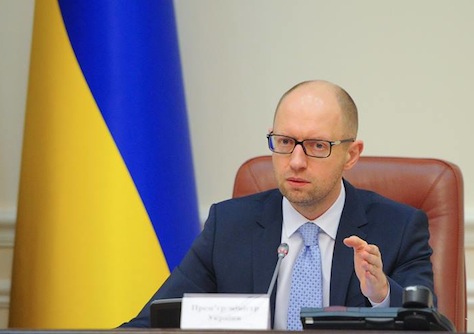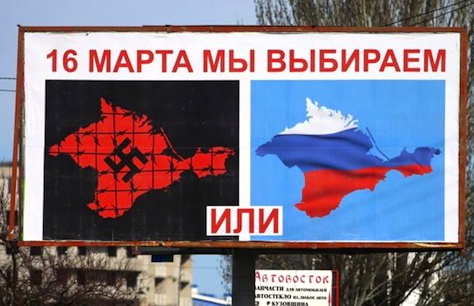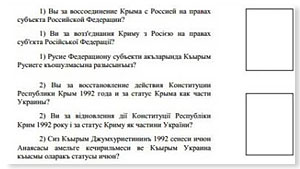It’s a quadruple-threat Sunday for world elections!
Ukraine: parliamentary elections. In Ukraine, voters will go to the polls for legislative elections to select 450 members of the unicameral parliament, the Verkhovna Rada. The elections will be a key test for Ukraine’s fledgling democratic institutions eight years after the ‘Orange Revolution.’ Pro-Russian president Viktor Yanukovych, whose support is based in the eastern half of the country, is hoping to win an outright majority in a campaign that has been far from free and fair. Two center-right groups are vying for the opposition vote — a bloc led by former prime minister and presidential candidate Yulia Tymoshenko, who has been imprisoned on politically-motivated charges and a new anti-corruption group led by heavyweight champion Vitaliy Klychko. Unlike in the previous 2007 parliamentary elections (which were fully by proportional representation), today’s elections will be determined one-half by proportional representation and one-half through direct single-member districts. That means the anti-Yanukovych vote could splinter, allowing the government to consolidate its control over Ukraine. The election result will likely determine whether the former Soviet republic of 45 million people will continue its turn toward Europe as a potential European Union member.
Lithuania: parliamentary runoff. Nearby, in another former Soviet republic of just over three million people — Lithuania, voters return to the polls for a runoff after a vote two weeks ago that saw the triumph of two leftist parties: the populist Darbo Partija (DP, Labour Party), led by Russian-born Viktor Uspaskich, won 19.96% and the more center-left Lietuvos socialdemokratų partija (LSDP, Social Democratic Party of Lithuania) won 18.45%. The governing Tėvynės sąjunga – Lietuvos krikščionys demokratai (TS-LKD, Homeland Union — Lithuanian Christian Democrats) of prime minister Andrius Kubilius won just 14.93%, a defeat for Kubilius after a difficult campaign that reflected the realities of four years of grinding austerity and difficult economic conditions. Half (70) of the seats in Lithuania’s unicameral parliament, the Seimas, were determined by the October 14 vote, while 71 more seats are determined in single-member districts, and many of those will be determined in today’s runoff vote. It’s virtually certain that the Social Democrats and Labour will form the next government, likely under the leader of the Social Democrats and former finance minister, Algirdas Butkevičius rather than the corruption-plagued Uspaskich, although either the Social Democrats or Labour may ultimately wind up with more seats after today’s vote.
São Paulo: mayoral runoff. In Brazil’s largest city, São Paulo, home to nearly 11 million people, voters will choose a mayor in a contest that will have implications for Brazil’s national politics. Voters will choose between the top two candidates from the Oct. 14 vote: Fernando Haddad, the candidate of the Partido dos Trabalhadores (PT, Workers’ Party) of Brazilian president Dilma Rousseff and former president Luiz Inácio Lula da Silva, and a former education minister in Lula’s administration; and José Serra, the candidate of the center-right Partido da Social Democracia Brasileira (PSDB, the Brazilian Social Democracy Party), who lost the Brazilian presidency to Lula in 2002 and, more narrowly, in 2010 to Rousseff. Serra, himself a former mayor of São Paulo from 2004 to 2006, when he won election as the governor of São Paulo state, despite a pledge to serve his entire term as mayor, Serra led the vote two weeks ago with 30.75% to 28.99% for Haddad. Serra and Haddad edged out Celso Russomanno, a famous television consumer advocate in the 1990s, with support from the evangelist Universal Church of the Kingdom of God, who had been the frontrunner throughout the campaign, who finished with just 21.6o%. Polls show Haddad with a double-digit lead over Serra, however, which could effectively end Serra’s hopes for a third run at the presidency.

Sicily: regional parliamentary elections. Finally, in the southern Italian region of Sicily, voters will select the 90 members of Sicily’s unicameral regional parliament. Three parties are vying for the largest share of the vote, and 80 seats are awarded by proportional representation: a center-right coalition led by European parliament member Nello Musumeci and backed by former prime minister Silvio Berlusconi (who was convicted Friday for tax fraud) and his Popolo della Libertà (PdL, People of Freedom); a center-left coalition led by Rosario Crocetta (pictured above, top), the openly gay mafia-fighting former mayor of Gela (Sicily’s sixth-largest city); and the new anti-austerity protest party, the Movimento 5 Stelle (M5S, Five Star Movement) of blogger and comedian Beppe Grillo, who kicked off his party’s Sicily campaign by swimming across the Strait of Messina. Radical leftists and a conservative Sicilianist/autonomist coalition are also expected to win significant support. The election is a significant test in advance of national elections expected to come in April 2013 following the technocratic government of prime minister Mario Monti, who has pledged not to run in his own right.
![]()


